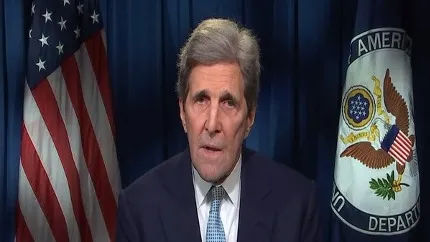




John Kerry, the Special Envoy for Climate Affairs under the Biden administration, has announced his intention to step down by spring. Kerry has been a key figure in US climate diplomacy, leading the country's negotiating team through three United Nations climate summits. His departure comes as he plans to support Joe Biden's re-election campaign, believing that a second term for Biden would be crucial for advancing progress on the climate crisis. Kerry's resignation marks the end of his impactful role in climate diplomacy [791e7e1f].
Xie Zhenhua, China's Special Envoy for Climate Change Affairs, has also retired from climate diplomacy. Xie, who has been steering China's climate diplomacy since 2007, played a crucial role in bridging rifts between China and the US and defining the global climate stage. His retirement marks a significant leadership gap in the crucial bilateral relationship and climate politics [8a345aff].
The future of US-China climate talks is now uncertain following the departure of both Kerry and Xie. Both envoys played key roles in the negotiations, and their absence raises questions about the continuity and progress of these talks. The talks between the two countries have faced challenges in the past, including disagreements on issues such as emissions reduction targets and climate finance. The success of future US-China climate talks will depend on the commitment and engagement of both countries, as well as the appointment of new envoys to lead the negotiations [791e7e1f] [8a345aff].
Liu Zhenmin, a former deputy foreign minister of China, has been appointed as China's new top climate diplomat, replacing Xie Zhenhua. Liu Zhenmin's background in international diplomacy makes him a smart choice for this role. China is a key player in international climate politics, and Liu Zhenmin's appointment will be significant for global climate action [8a345aff].
John Podesta, a Democratic Party political strategist and energy expert, has been appointed as the new US climate envoy, succeeding John Kerry. Podesta's role as senior adviser to the president for international climate policy will help match the US's global commitments with its domestic efforts. His appointment will have implications for COP29, with Podesta potentially leading the American delegation if elected as the face of the US at the conference [8a345aff].
Republicans, including House Energy and Commerce Committee Chair Cathy McMorris Rodgers and Senate Environment and Public Works Committee ranking member Shelley Moore Capito, accuse President Biden of trying to 'circumvent the law' by replacing John Kerry as the presidential climate envoy without Senate approval. They argue that this violates the National Defense Authorization Act for Fiscal Year 2022. Biden appointed John Podesta, a veteran Democratic operative, as the 'senior advisor to the president for international climate policy' based at the White House. Republicans claim that this appointment is an attempt to sidestep congressional oversight and accountability. John Kerry stepped down after three years as the special presidential envoy for climate, and his replacement by Podesta has sparked criticism from conservatives who have accused Kerry of excessive international travel and using private jets. Podesta will also work with the State Department on international climate issues [a9e9d7aa] [791e7e1f] [8a345aff].
Experts believe that China and the United States may need a transitional period to adapt to bilateral climate diplomacy without Xie and Kerry, but long-term climate cooperation will not be significantly affected. Both countries need to promote green innovation and a green, low-carbon transition to address the pressing issue of climate change [8a345aff].
Richard Benedick, a career diplomat, played a key role in securing the Montreal Protocol, an international environmental pact to protect the ozone layer by reducing the use of certain chemicals. In May 1985, a report confirmed the depletion of atmospheric ozone due to the use of chlorofluorocarbons (CFCs). Two years later, the Montreal Protocol was signed by dozens of nations to significantly reduce CFCs, preventing an estimated 27 million deaths from skin cancers. Richard Benedick passed away on March 16 at the age of 88. His role in negotiating the Montreal Protocol is recognized as a milestone of collective action in addressing environmental threats [0487cc3b].
Joseph Lieberman, the late Connecticut Senator, made significant efforts to seek a middle ground solution on climate change. His 2003 cap-and-trade effort, co-sponsored by Arizona Republican Sen. John McCain, garnered attention and support, but ultimately failed to pass. Lieberman continued to advocate for climate action throughout his career, but faced challenges from business lobbyists and political opposition. Despite the setbacks, Lieberman believed that cap-and-trade was the best solution to address carbon emissions. His efforts paved the way for future climate legislation and contributed to the current focus on climate change. Lieberman's legacy in climate action is recognized and honored by many in the environmental community [d208ebdc].